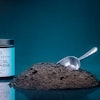
 Amanda Damen, Category Manager, Lubricants, Suncor
Amanda Damen, Category Manager, Lubricants, SuncorNever before has the food industry been under such close watch. With end consumers, special interest groups and regulatory bodies alike weighing in on food safety from farm to fork, it’s more important than ever for food processing companies to stay on top of the regulatory environment — especially as it relates to the use of food grade lubricants. Global food safety standards are also becoming increasingly popular, along with the modernization of food safety legislation globally.
This is why operators and site managers can turn to companies such as Petro-Canada Lubricants for help with understanding today’s safety, technical and operational standards for lubricants used in food manufacturing. Recently, we have seen an increased interest from managers seeking clarification about ISO 21469 certification and what it means for their plants, products and customers.
ISO 21469 – Keeping your standards high
Most simply put, the ISO 21469 certification looks at the entire lubricant product lifecycle from formulating to production and packaging. It specifies the hygiene requirements for the formulation, manufacture, use and handling of lubricants that could come into incidental contact with food at any processing stage. The certification requires a full risk assessment of each lubricant to ensure all procedures, requirements and criteria are met. The lubricant manufacturing facility is audited by an independent third party to ensure compliance with the standard. An ISO 21469 certification demonstrates an ongoing commitment to quality and hygiene, with annual sampling and testing on certified products and an annual audit of the lubricant production facility.
This process verifies that the food grade lubricants continue to use FDA listed ingredients as specified in the registered formulation. This is a significant point of difference for lubricant suppliers and an important consideration when managers are selecting food grade lubricants for their facility.
Why should this matter for today’s operations? The ISO 21469 certification provides operations managers and even concerned customers with the confidence and peace of mind in knowing that there are controls in place to protect their products from the dangers of potential lubricant contamination. For operations, this also means less risk of product recalls and related reputational vulnerabilities.
It is important that plant managers understand ISO 21469 certification is a valuable addition to the NSF H1 registration of lubricants for incidental food contact, but does not replace this key credential. As part of a complete food safety plan, managers should also have a robust Hazard Analysis and Critical Control Point (HACCP) plan as another tool to increase contamination controls and safety at their plant.
Controlling risk with inventory consolidation
Beyond selecting a lubricant with ISO 21469 certification, the best way to ensure that your plant does not suffer from non-H1 lubricant contamination is to use H1 lubricants across the entire facility.
Although guidelines are in place for the use of NSF H2 registration for lubricants for no food contact, it is impossible to completely alleviate the fear of contamination caused by simple human error — pulling the wrong lubricant from the shelf or using unclean transfer equipment that is contaminated with non-H1 lubricant. It is also important to note that although H2 lubricants have restrictions on the use of compounds such as heavy metals and carcinogens, they do not have a defined list of acceptable ingredients. So, the potential implications of H2 lubricant contamination are not completely known.
About Petro-Canada Lubricants
Petro-Canada Lubricants specializes in products and services proven to maximize equipment performance, productivity and overall savings. All Petro-Canada PURITY FG lubricants can be easily integrated into HACCP plans and GMP (Good Manufacturing Practice) programs. Select products of PURITY FG are ISO 21469 certified. Certifications on PURITY FG lubricants also include Kosher Pareve and Halal, for added customer assurance. On top of achieving industry leading standards, PURITY FG products are proven to protect your equipment in even the most extreme conditions, including severe temperature swings and intensive cleaning. PURITY FG lubricants help reduce downtime, streamline inventory and, ultimately, can help save today’s operations time and money while addressing challenges in machinery lubrication and food safety needs.























